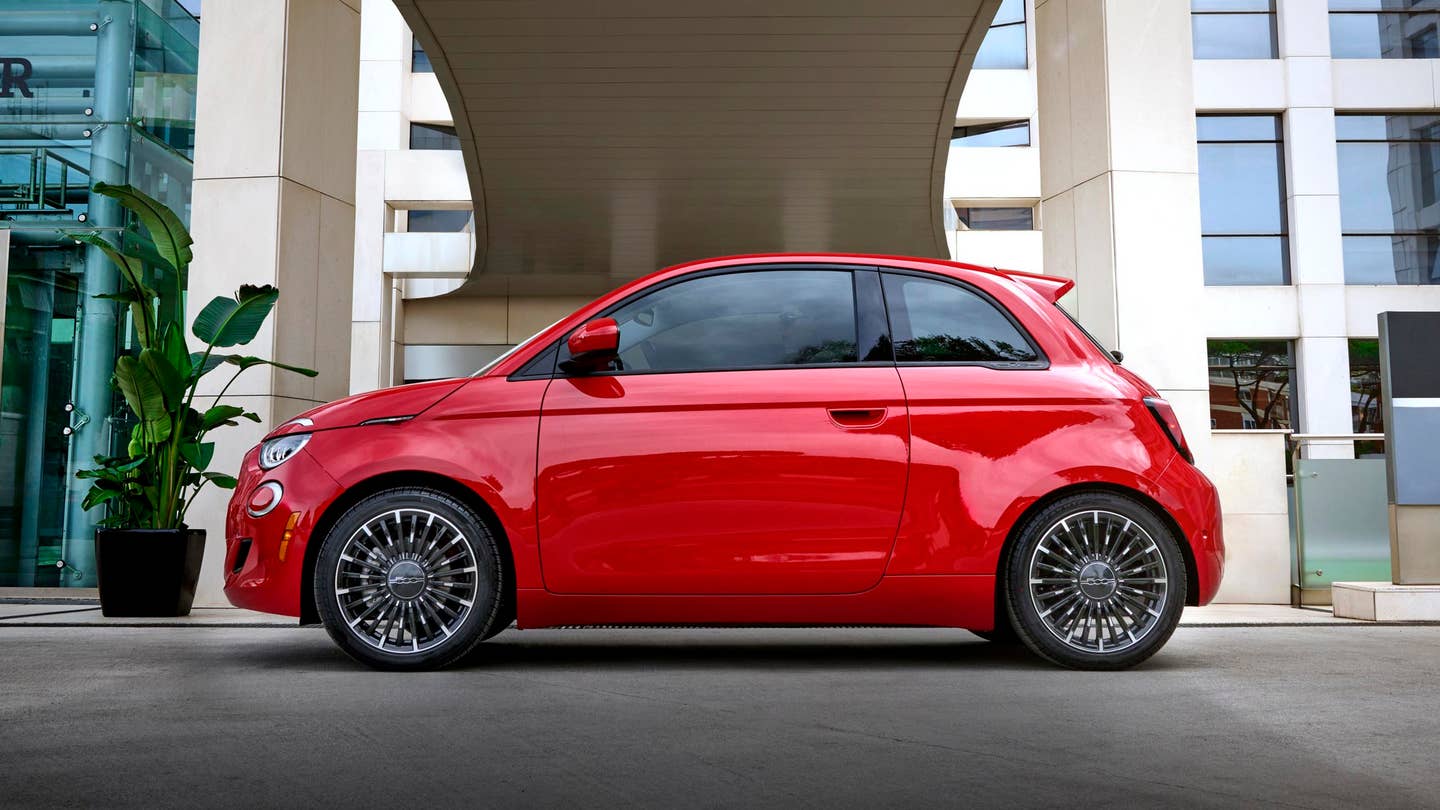Most EVs lose carmakers money, but Fiat’s decided the new 500e shouldn’t do that.

Can the 2024 Fiat 500e pick up where the Chevrolet Bolt left off and get Americans into small EVs? History admittedly doesn’t paint the rosiest picture, but Stellantis is going to try in any case. One thing we shouldn’t expect, compared to the last time Fiat tried to peddle its electric supermini on our shores, are those borderline absurd lease deals that got some owners into the tiny hatch for less than $50 a month in the previous decade. Fiat says interested customers shouldn’t hold their breath for anything of the sort this time around, and that the company actually plans to make a healthy profit on each one sold.
The insight comes to us by way of InsideEVs’ Kevin Williams, who learned from Fiat’s North American boss Aamir Ahmed that unlike other entry-level EVs, the Italian brand won’t lose sums on every 500e shifted.
“You know, actually we’re cash-positive on this product,” Ahmed said. “Other competitors that we’ve looked into that play in this price range, are loss leaders. We actually will make money on each unit sold.”
It’s an important stipulation because automakers, even the most successful ones with the greatest resources, aren’t roundly profiting off their EVs by default. General Motors Chief Financial Officer Paul Jacobson recently predicted that his company will finally turn the tide with its own EVs—in 2025. Worse yet, GM’s struggling to put away cash per unit on all of its fully electric models, not just affordable, low-margin nameplates like the Chevy Bolt. And that’s what makes what Stellantis has achieved with the $34,000 500e all the more impressive.
Of course, the 500e’s secret to profitability might well be evident in its price, as it’s still $6,600 more expensive than the Bolt started at, and goes 110 miles less on a charge—a sizable chunk, when the 500e is limited to an EPA-estimated 149 miles. But it’ll be critical for Stellantis to avoid taking a bath if it hopes to sell anything like the 500e in North America over the long haul. Straight up, Ahmed told InsideEVs those epic lease deals not only aren’t on the table—they couldn’t be.
“I don’t even know how we’d even do that again,” Ahmed said. “Considering the [500e’s] pricing, the banks, and everything else—I feel confident that the 500e is right where it is supposed to be.”
Stellantis
You’d expect any executive to tell the media that they have no intention of effectively giving their product away, but then the late, straight-shooting Sergio Marchionne flat out asked the public to avoid the old 500e because it supposedly lost Fiat Chrysler $14,000 every sale.
The automotive market sure has transformed over the last decade and change, to say nothing of the business surrounding EVs specifically. The 500e will have to overcome multiple hurdles to leave its mark: America’s chronic small-car allergy, what people believe about $30,000 should buy them in a car versus the economic reality, and the EV “chasm” in general, not to mention Fiat’s own lack of brand cachet on this side of the Atlantic. But hey—at least every 500e will supposedly help the cause rather than hurt it.
Got tips? Send ’em to tips@thedrive.com


